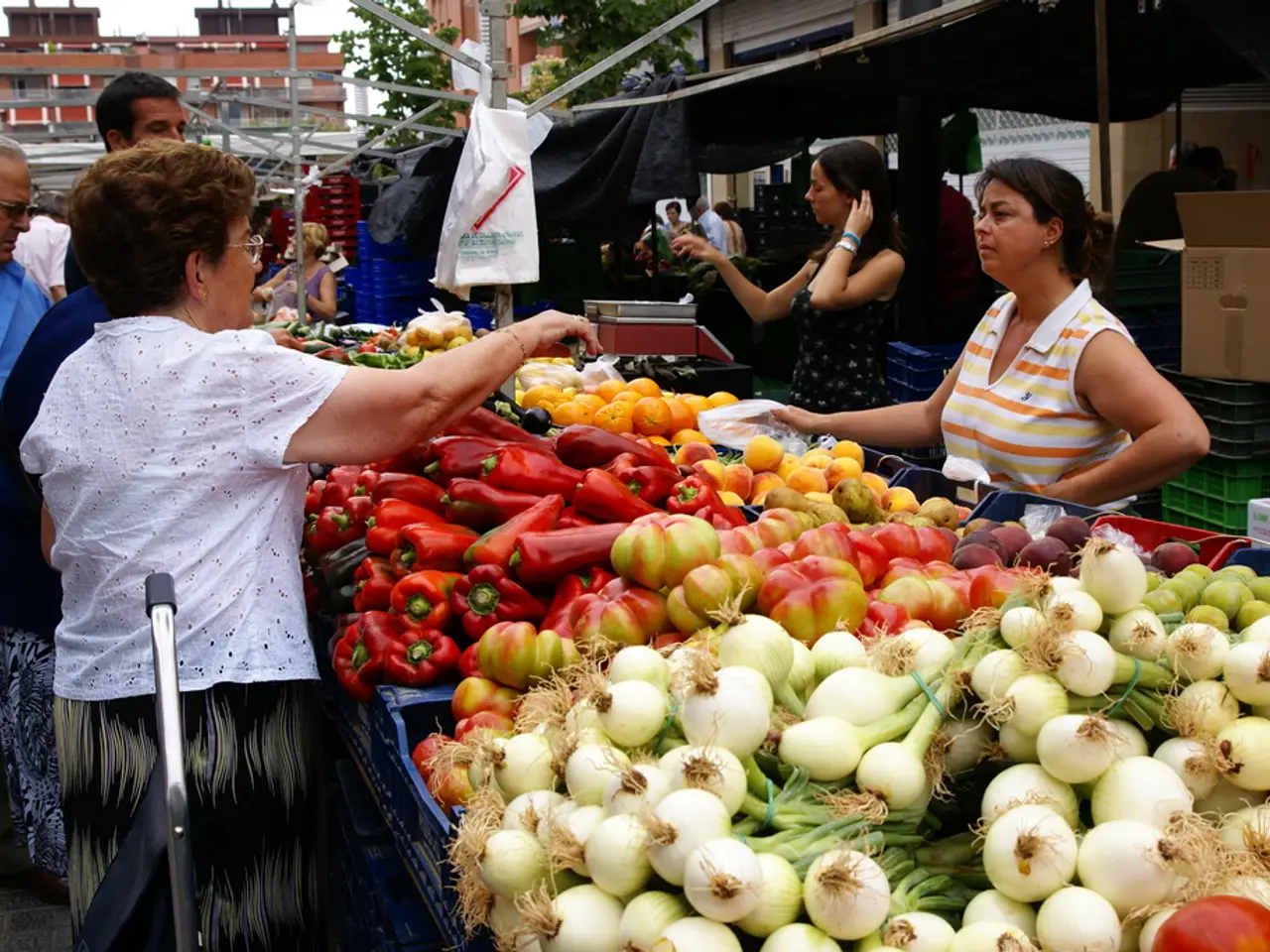Sustainable Bioplastics: An Environmental Perspective
In the realm of space travel and airplane flight, Dr Elspeth MacRae emphasises the significance of plastic, a material that could soon undergo a transformative shift. This shift is driven by research and development spearheaded by programmes like the Scion initiative, which aims to create plastics that are not only sustainable but also derived from renewable resources.
The Scion program, based in New Zealand, is focused on the production of plastics that are both sustainable and biodegradable. Unlike traditional plastics, which are derived from fossil fuels such as lignin from old trees, the Scion program ferments sugar to create bioplastics, avoiding the need for extraction from the ground.
Dr Florian Graichen explains that these bioplastics can be made from a variety of renewable materials, including sugar from trees, corn starch, sugarcane, and other plant-based materials. Common examples include Polylactic Acid (PLA), produced from corn starch or sugarcane, and Polyhydroxybutyrate (PHB), a starch-derived plastic.
One of the key advantages of bioplastics is their lower carbon footprint. Unlike petroleum plastics, which contribute to the overall carbon cycle, bioplastics do not add CO2 to the atmosphere during their production. Moreover, the plants used as feedstock sequester CO2 during growth, and this carbon can remain stored in bioplastic products, contributing to a lower carbon footprint.
Dame Juliet Gerrard, another leading voice in this field, distinguishes between biodegradable plastics and plastics made of biological materials. Bioplastics, she explains, are plastics made from biological materials, not just biodegradable plastics that can come from any source.
The end-of-life management of bioplastics can be controlled, unlike petroleum plastics. This means that bioplastics can be recycled, composted, or recovered for energy, supporting circular economy principles and reducing environmental health risks compared to conventional plastics.
However, it's important to note that the full sustainability assessment of bioplastics depends on various factors, including the specific bioplastic type, application, recycling or disposal methods, and local infrastructure. Some bioplastics can be biodegraded or composted under specific conditions, such as industrial composting facilities, while others may require high-temperature composting for degradation.
In summary, bioplastics made from renewable biomass offer a promising solution for the future of space travel and airplane flight. They are sustainable, lower greenhouse gas emissions, and often biodegradable or compostable, making them a viable alternative to traditional plastics. With proper end-of-life management, bioplastics can mitigate plastic pollution and reduce environmental impact. The Scion program, among others, is at the forefront of this revolution, envisioning a future where most plastics are made from a new class of materials derived from plant waste.
The Scion program, with a focus on sustainable and biodegradable plastics, is moving towards a future where these materials could revolutionize not only the space travel and airplane industry but also the broader field of environmental science, contributing to the mitigation of climate-change effects. With the potential to change plastic's footprint and lower greenhouse gas emissions, these biodegradable alternatives could be a key element in the ongoing technological advancements aimed at creating a more sustainable world.




